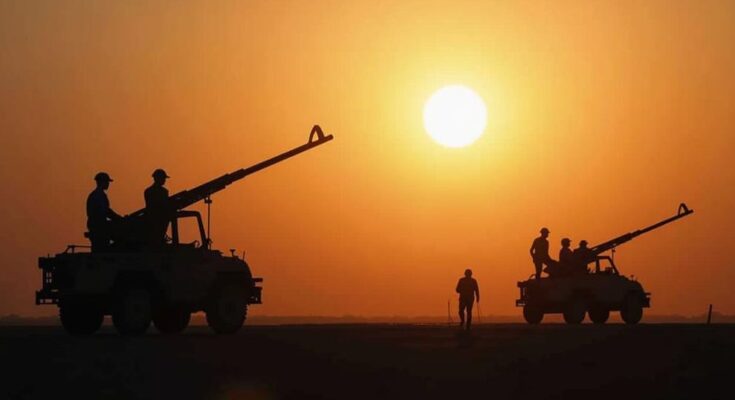Israel’s military operations have effectively disordered Hezbollah by eliminating its leadership, including the killing of Hassan Nasrallah. This operation is reflected in the weakening of Iranian influence, as Israel intensifies attacks on Hezbollah and other Iranian proxies like Hamas, which raises concerns over the potential for further conflict and instability in Lebanon and the broader Middle East region.
In recent developments, Israel’s military operations have significantly destabilized Hezbollah, the Iranian-backed Lebanese militant group, following a series of attacks that have inflicted considerable losses on its hierarchy. Israel’s strategic use of advanced weaponry, coupled with detailed intelligence operations, has led to the assassination of key figures, including Hassan Nasrallah, Hezbollah’s leader. This marked escalation has drawn parallels to historical conflicts, with commentators noting the potential erosion of Iran’s influence in the region and the diminishing credibility of the “axis of resistance” rhetoric that Hezbollah and its allies have espoused. Following these developments, Israel has not only continued its aggression against Hezbollah but has also targeted Hamas and the Houthis, further complicating the geopolitical landscape in the Middle East. The ramifications of these actions suggest a looming possibility of civil unrest in Lebanon and a response from Iran that could alter regional dynamics dramatically. Israeli officials, buoyed by their recent military successes, might be inclined to extend their campaign, raising concerns among Western leaders about potential escalation into full-scale war. The situation remains fluid, with various factions reassessing their strategies in light of ongoing hostilities.
The current tensions in the Middle East reflect longstanding hostilities rooted in the complex interactions among Israel, Hezbollah, Iran, and other regional players. Israel views Hezbollah as a direct threat, given its alignment with Iran’s broader ambitions in the region. In response to what it perceives as aggression by Iran and its proxies, Israel has undertaken a rigorous military campaign aimed at neutralizing these threats. This has included a combination of surgical strikes and intelligence operations targeting prominent figures within these groups, particularly focusing on diminishing their operational capabilities.
The recent Israeli military actions against Hezbollah have yielded considerable tactical victories, yet they risk drawing regional actors into a broader conflict. The assassination of key leaders such as Hassan Nasrallah raises questions about the future of Hezbollah and the resilience of Iranian influence in Lebanon. As the situation develops, the potential for civil strife in Lebanon remains high, with Iranian officials likely contemplating their strategic options in response to these provocations. The need for a diplomatic resolution is urgent, as the cycle of violence only perpetuates the conditions that foster extremism.
Original Source: www.washingtonpost.com




